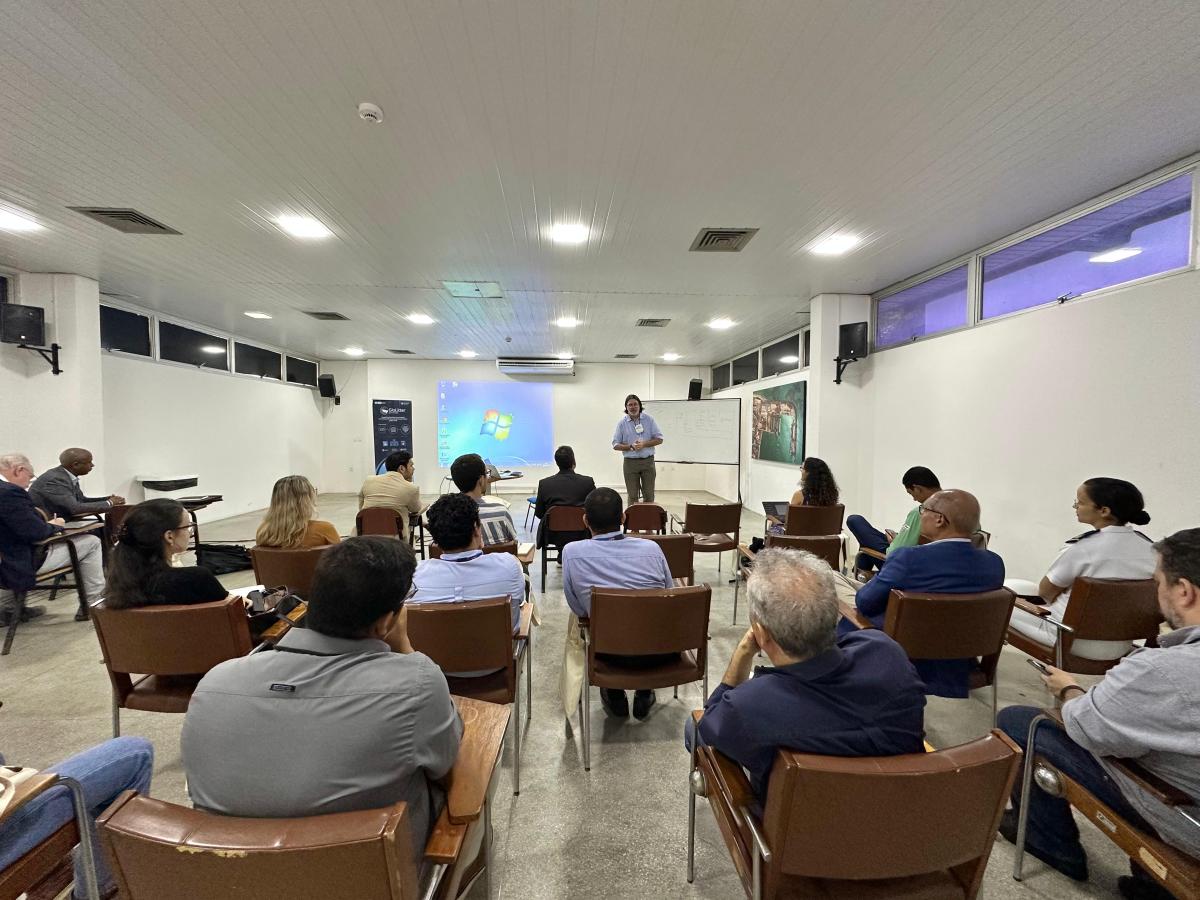02/12/2024 12:46:00 Ascom Porto de Maceió | Noticias
Port of Maceió hosts international workshop to prepare a Port Waste Management Plan

Ascom Porto de Maceió
The Port Administration of Maceió will host the GloLitter Partnerships Project Meeting throughout this week, bringing together specialists, professionals, and authorities with the goal of strengthening the global commitment to the preservation of the marine environment and the sustainable management of waste in ports. The event opened on Monday (December 2) at the auditorium of the Port of Maceió. The meeting is the result of a partnership between the National Waterway Transportation Agency (ANTAQ), the International Maritime Organization (IMO), and the United Nations Food and Agriculture Organization (FAO).
During the event, a workshop will be held to train those involved in the preparation of the Port of Maceió's Port Waste Management Plan (PWMP), a document that establishes guidelines and obligations for managing these wastes, with the purpose of standardizing actions and developing a culture of reduction, recycling, reuse, and waste prevention.
The administrator of the Port of Maceió, Diogo Holanda, highlighted the importance of focusing on actions to prevent marine pollution. "The challenges of waste management in port areas are growing. We know that ports play a crucial role in global trade, but they are also focal points for waste generation, which, if not properly managed, can harm the ecological balance of the seas. Undoubtedly, environmental impact control is a major concern for the Port of Maceió, and we are committed to carrying out our activities in an increasingly sustainable manner," said the administrator.
The meeting will also address port control of marine litter, focusing on understanding and applying the guidelines established by the International Convention for the Prevention of Pollution from Ships (MARPOL), with an emphasis on controlling solid waste from port operations and vessels.
GloLitter
GloLitter will help developing countries identify opportunities to prevent and reduce marine litter, including plastic waste, from the maritime transport and fishing sectors. The project aims to reduce plastic use in these industries and identify opportunities for recycling plastics, in order to better protect the fragile marine environment, as well as lives and livelihoods – aligned with Sustainable Development Goal 14, which is dedicated to preventing and reducing marine pollution and conserving and sustainably using the oceans.



